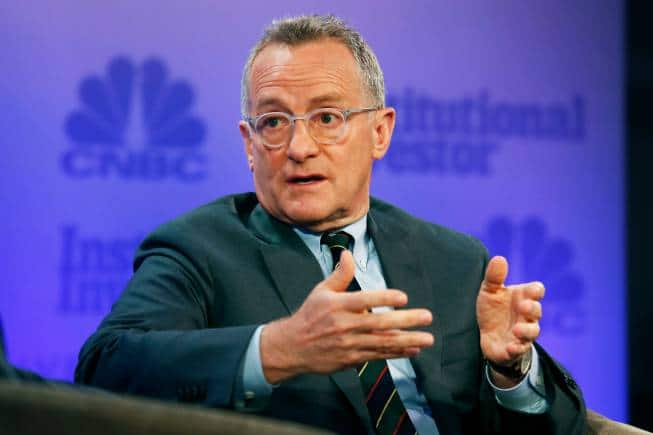In third ‘sea change’ in his career, Howard Marks sees an era of lenders and bargain hunters

Howard Marks, one of the world’s most revered investors and founder of Oaktree Capital, believes that he is currently witnessing the third “sea-change” in his 53-year-old career.
In his five-decade-long career, Marks has seen several “boom and bust” cycles, the rise and fall of great countries and shifting tides of economic powers across the world. For the veteran hedge fund manager, the first ever “sea change”, as he describes it, came in the 1970s when credit investors went from avoiding risk at all costs to seeing risk in relative terms to returns.
“Young people joining the industry today would likely be shocked to learn that, back then, investors didn’t think in risk/return terms. Now that’s all we do. Ergo, a sea change,” Marks noted in his recent memo.
Another sea change during his career occurred with the chairmanship of Paul Volcker at the US Federal Reserve. Tasked with breaking the back of nearly a decade-long high inflation environment, Volcker ushered in the era of lower interest rates in the US after his successful fight against inflation that lasted for nearly 40 years.
Over the past four decades, as the cost of borrowing plummeted in the developed world, investors ventured farther up the risk spectrum to make returns they deemed satisfactory. In the four decades between 1982 and 2022, the S&P500 index gave annualised returns of 10 percent with inflation largely sub- 5 percent.
“What a period! There can be no greater financial and investment career luck than to have participated in it,” Marks said.
Now, Marks believes that the macroeconomic policy response from government and central banks, in particular, have ushered in a new “sea-change” in the global investment environment. Marks contends that investors’ hope of the US Fed returning to the stimulative phase as it was during 2009-20 may not fructify as inflation is likely to be more persistent.
“Inflation and interest rates are highly likely to remain the dominant considerations influencing the investment environment for the next several years,” he said.
Marks believes to declare a victory in its fight against inflation, Fed needs to not only see inflation settle near 2 percent but also extinguish the inflationary psychology, requiring to keep real interest rates (nominal interest rates minus inflation) positive.
“These are the reasons why I believe that the base interest rate over the next several years is more likely to average 2-4 percent than 0-2 percent,” Marks argued.
In a world where, the US interest rates settle at a higher plane and inflation continues to remain troublesome for central bankers, especially, as the deflationary hold of globalisation steadily loosens, Marks believes that it will be the lenders and bargain hunters that will face better prospects.
“Investors can now potentially get solid returns from credit instruments, meaning they no longer have to rely as heavily on riskier investments to achieve their overall return targets,” Marks said.
Disclaimer: The views and investment tips expressed by experts on Moneycontrol are their own, and not that of the website or its management. Moneycontrol advises users to check with certified experts before taking any investment decisions.?









